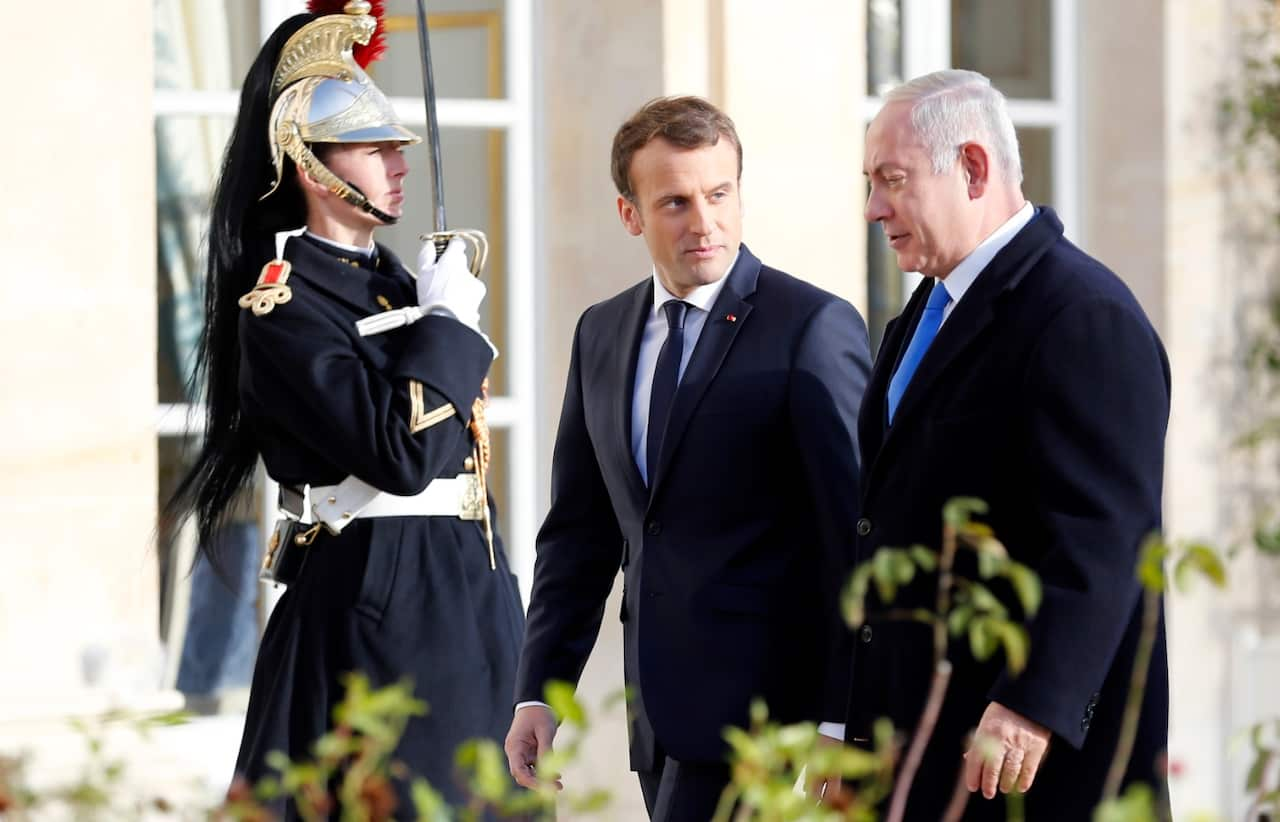Netanyayu was in Paris ahead of a meeting with EU foreign ministers on Monday when they will try present a unified front after U.S. President Donald Trump’s decision to recognise Jerusalem as the capital of Israel.
While condemning all acts of terrorism against Israel, Macron said that he told Netanyahu that he was against Trump’s decision, which was a “dangerous threat to peace.”
“I asked Prime Minister Netanyuhu to make some courageous gestures toward the Palestinians to get out of the current impasse,” he said, suggesting that a freeze of settlement construction could be s first step.
He reaffirmed that France believed that a two-state solution was the only viable option to end the Palestinian-Israeli conflict.

European countries, like most nations, have criticised the Trump administration’s decision last week which reversed decades of US policy. Israel considers all of Jerusalem to be its capital, while the Palestinians want the eastern part of the city as capital of a future independent state.
Most countries have maintained the position that decisions about Jerusalem’s status should be left to future negotiations. The Trump administration argues that any future peace deal is likely to place Israel’s capital in Jerusalem, and old policies need to be abandoned to revive the moribund peace process.
Netanyahu responded to Macron by saying that once the Palestinians recognised the “reality” that Jerusalem was the capital of Israel, "the sooner we'll move towards peace".
”The most important thing about peace is first of all to recognise that the other side has a right to exist,“ he said.
”One of the manifestations of this refusal is the mere refusal to sit down with Israel.
“Here is the gesture I offer .. to Mr Abbas to sit down and negotiate peace. That’s a gesture for peace. Nothing could be simpler,” he said, referring to Palestinian Authority President Mahmoud Abbas.
Macron said that he did not expect any breakthrough in the short-term, but it was important to see what a proposed US peace initiative expected early next year would look like before writing Washington off as a mediator in the conflict.
“I don’t think we need more initiatives,” Macron said, ruling out a new French mediation effort after holding a peace conference in Paris last January.
When asked about discontent across the region over Trump’s decision, including harsh criticism from Turkish President Tayyip Erdogan, Netanyahu said he would not be given morality lectures by the Turkish leader.
He said that many Arab nations were increasingly aligned with Israel to tackle Iran’s regional threat.
“Many Arab countries recognise that Israel is not their enemy but their indispensable ally,” he said.
“Countries in the region who do not have formal relations with us yet. Those can grow, but it doesn’t mean there will be a formal peace without some progress with the Palestinians.”
Netanyahu said he sought to use closer ties with Arab countries to isolate extremists and counter Iran.
“What Iran is trying to do is to entrench itself militarily with land, air and naval forces in Syria with the express purpose of fighting and destroying Israel. We will not tolerate that and we back up our words with actions,” he said.

